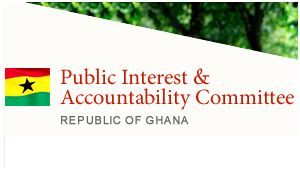“Our main interest is the citizens of Ghana. We have to get the citizenry to understand what the oil and gas exploration business is all about,” he said at one of the engagements in the Ketu South District.
Hold leaders accountable
Mr Jantuah reiterated the need for citizens to hold their leaders accountable for how the oil revenues have been used.
He said in instances where oil revenue allocated for projects was not used, the citizens should be able to demand answers from their Municipal Chief Executives (MCEs), District Chief Executives (DCEs), Assembly Members and their Members of Parliament (MPs).
“Oil revenues are supposed to benefit the people, so in instances where projects that are funded from oil revenues are missing, and you get to hear about it, you should be able to hold your leaders accountable and demand answers from them,” he added.
Independent assessment
Trying to explain the independence of the committee in doing its work, Mr Jantuah said although it worked closely with relevant institutions in the sector to gather information used for its reports – semi-annual and annual – the information was subjected to the committee’s independent verification and analysis prior to publication.
“Based on the information we gather from the two sides, we do our analysis,” he said.
Oil production in six years
Mr Jantuah said a total of about 194 million barrels of oil had been produced since exploration started in 2010. This translates into a total of US$3.4 billion as petroleum receipts.
Oil production, however, slumped in 2016, something Mr Jantuah attributed to the challenge with the turret bearing on the Floating Production Storage Offloading (FPSO) Kwame Nkrumah in the first half of last year.
The other factor which he said affected a slowdown in revenues was the declining global oil prices which the country did not have control over.
Priority areas
The PRMA makes provision for the Ministry of Finance to select four out of 13 priority areas on which oil revenues would be used under the Annual Budget Funding Amount (ABFA). The selected areas, he said, benefit for a period of three years.
He said the challenge with the priority areas in the last six years was that government continued to use some of the areas as omnibus spending avenues.
He explained that projects on which the money allocated under the four priority areas were expended differed from exactly what the priority area was supposed to do.




